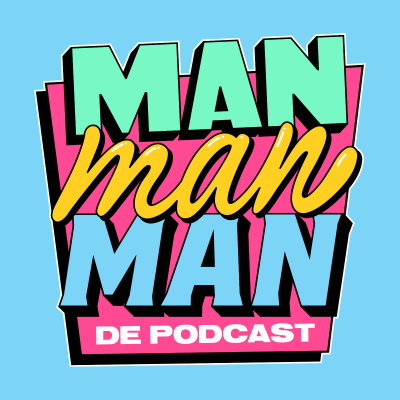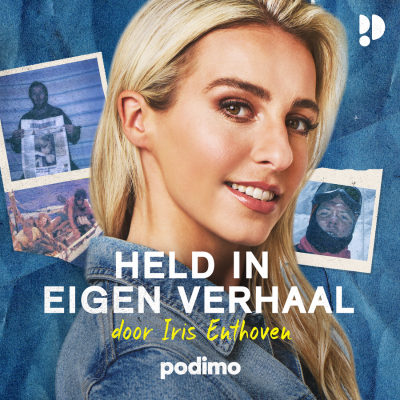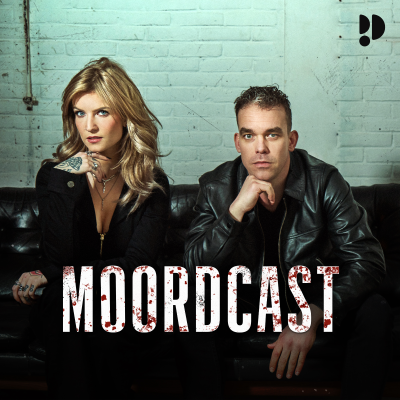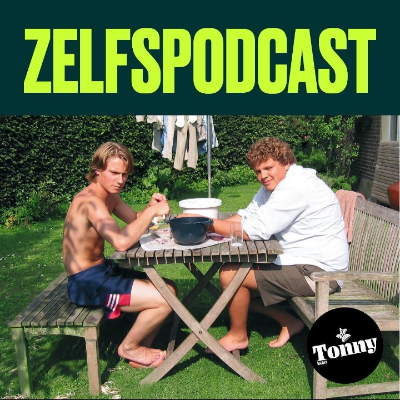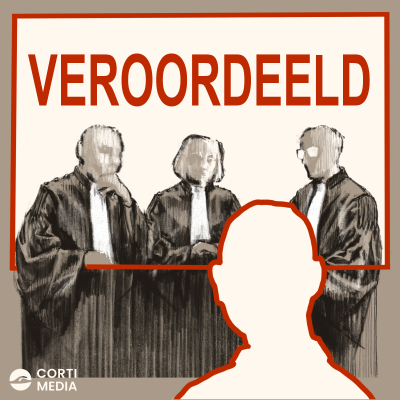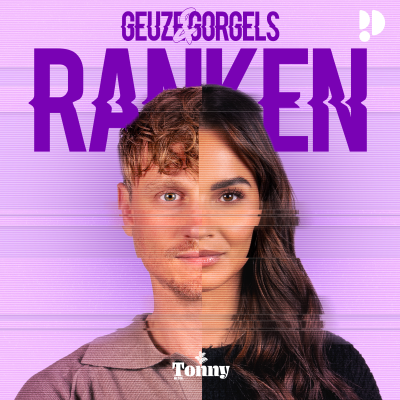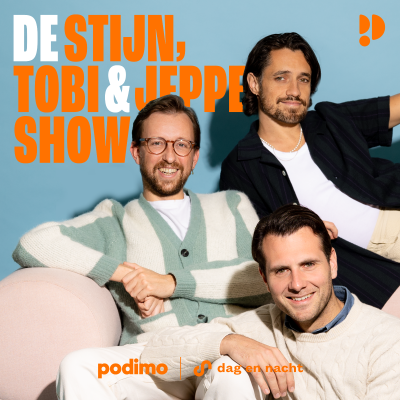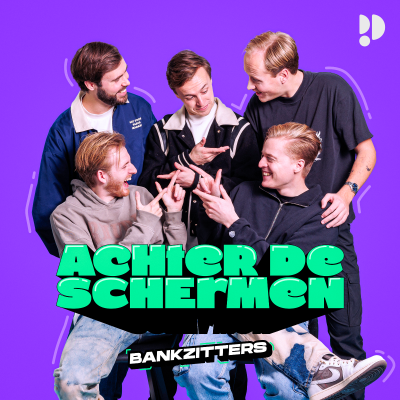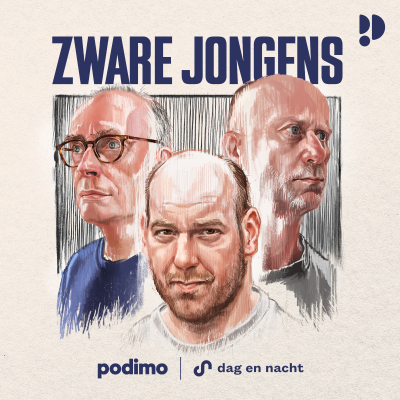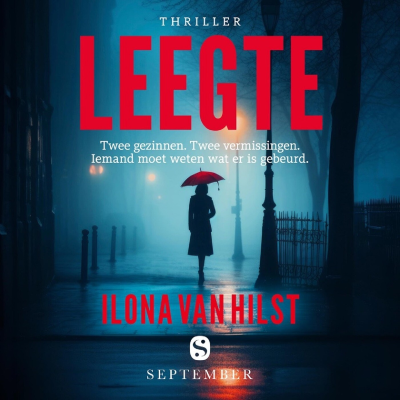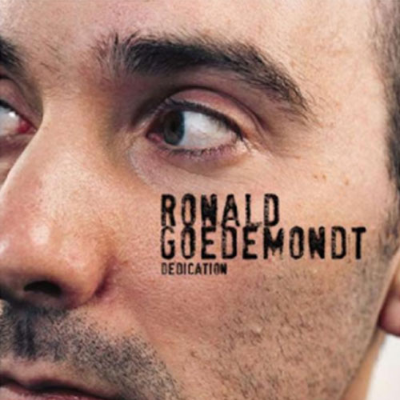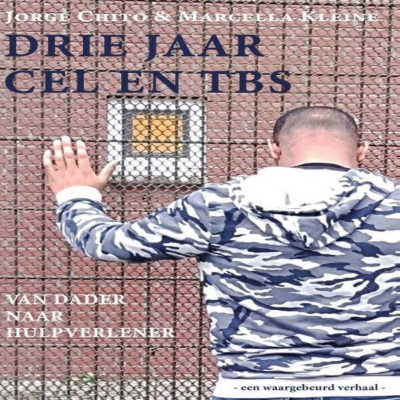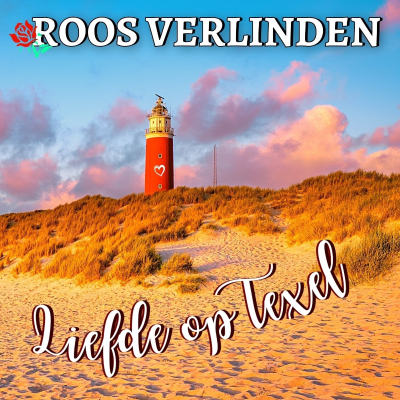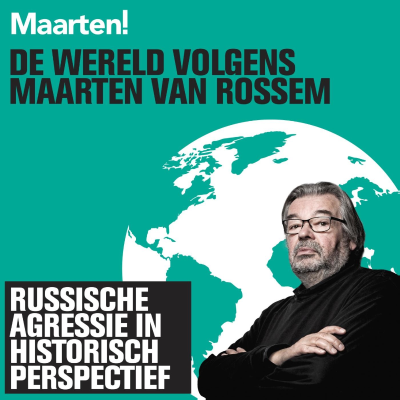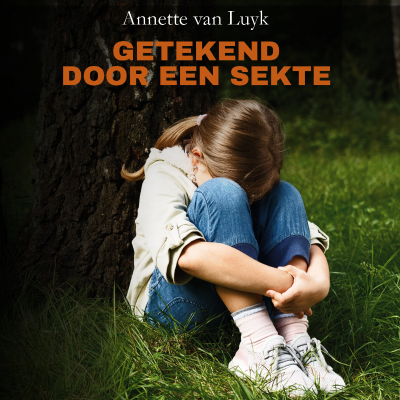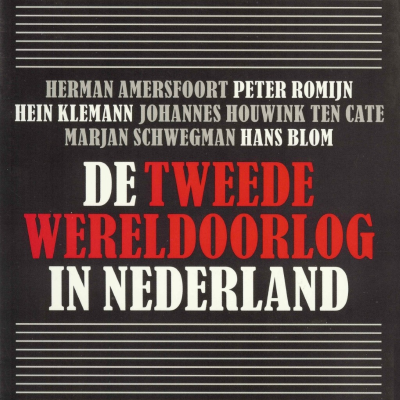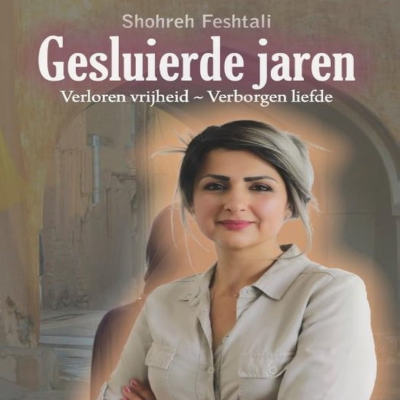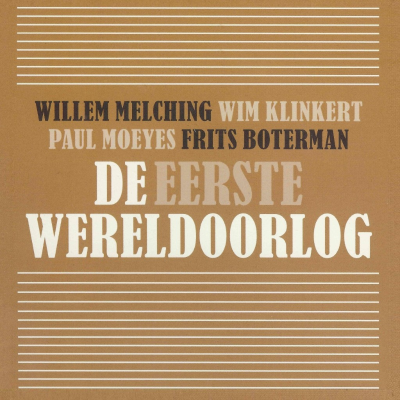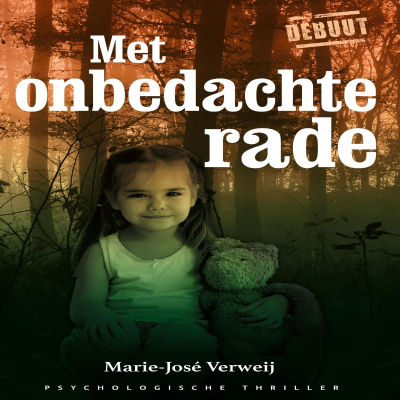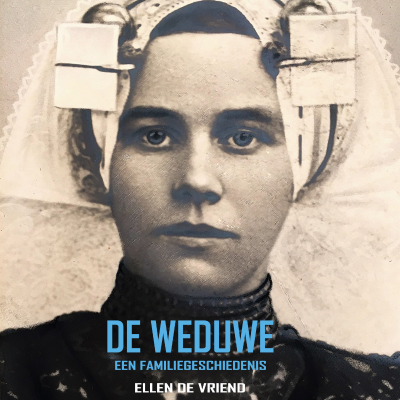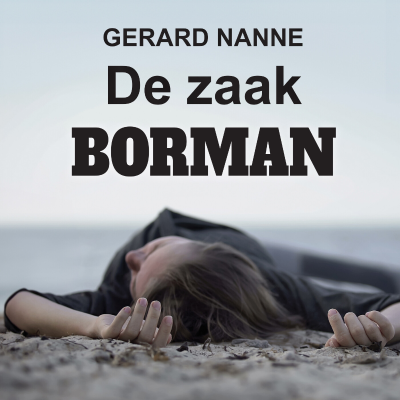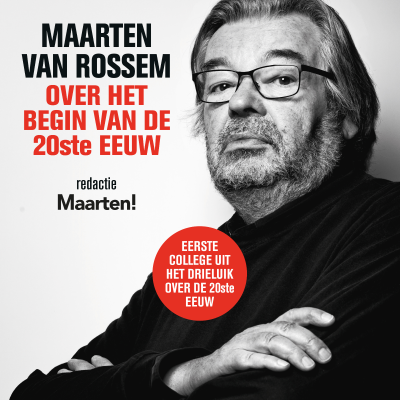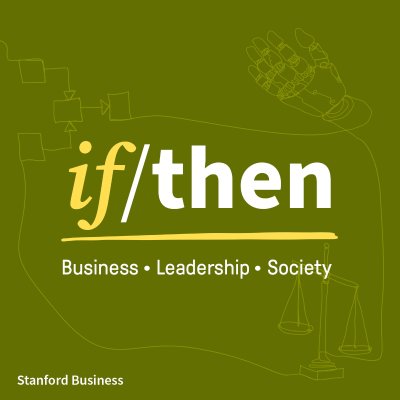
If/Then
Podcast door Stanford GSB
Tijdelijke aanbieding
3 maanden voor € 1,00
Daarna € 9,99 / maandElk moment opzegbaar.
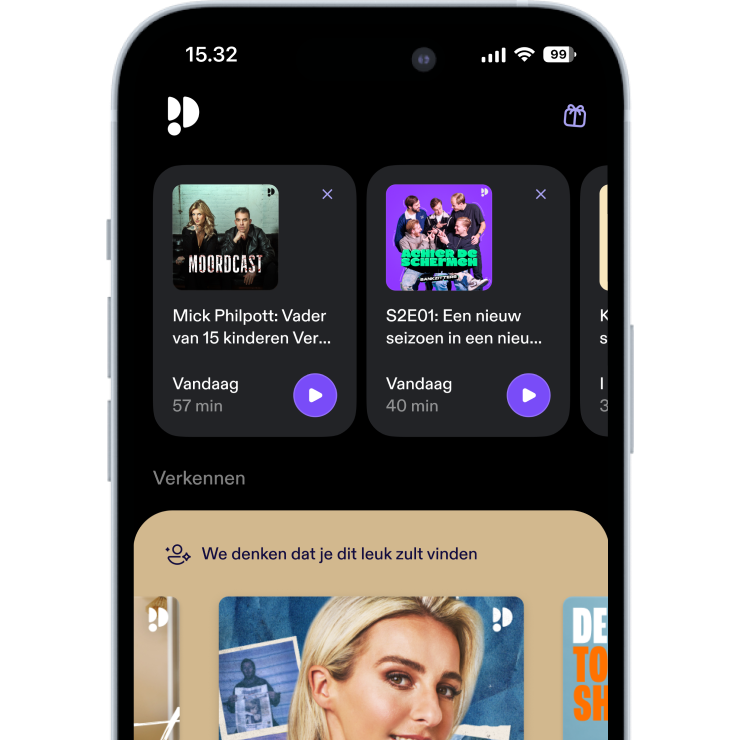
Meer dan 1 miljoen luisteraars
Je zult van Podimo houden en je bent niet de enige
Rated 4.7 in the App Store
Over If/Then
How do we lead with purpose, make better decisions, and navigate an uncertain future? On If/Then, Stanford GSB faculty break down cutting-edge research on leadership, strategy, and more, exploring enduring questions and the forces reshaping business and society today, from AI to geopolitics. Hosted by senior editor Kevin Cool.
Alle afleveringen
39 afleveringenThis week on If/Then [https://www.gsb.stanford.edu/business-podcasts/if-then], we’re sharing an episode of Think Fast, Talk Smart [https://www.fastersmarter.io/], a podcast hosted by Stanford Graduate School of Business lecturer and friend of the show, Matt Abrahams. How do you communicate with others when you’re confused yourself? For fellow GSB lecturer Rob Siegel, leadership isn’t about avoiding uncertainty: it’s about embracing the clarity that ambiguity can bring. In his latest book, “The Systems Leader: Mastering the Cross Pressures That Make or Break Today's Companies [https://www.gsb.stanford.edu/faculty-research/books/systems-leader],” Siegel explores how leaders today are “living in dualities,” caught between managing existing processes and adapting to emerging disruptions. “The sooner we get comfortable with [change] in the sense of ‘I don't have to like it, but I can deal with it,’ then [we can] lead our teams and give them the calm to know they can get through this.” On this episode of Think Fast, Talk Smart, Siegel and Abrahams explore how to communicate effectively amid constant change. From preparation strategies for spontaneous speaking to building trust through candid conversations, you'll hear practical tips for communicating with clarity when nothing is certain but change. More Resources: * Rob Siegel, faculty profile [https://www.gsb.stanford.edu/faculty-research/faculty/robert-e-siegel] * Matt Abrahams, faculty profile [https://profiles.stanford.edu/matthew-abrahams] * Think Fast Talk Smart [https://www.fastersmarter.io/] If/Then is a podcast from Stanford Graduate School of Business that examines research findings that can help us navigate the complex issues we face in business, leadership, and society. For a full transcript of this episode, visit our podcast’s website. Chapters: (00:00:00) Introduction Kevin Cool previews season three and introduces a featured episode from Think Fast Talk Smart. (00:00:40) Introduction to Rob Siegel Matt Abrahams welcomes Rob Siegel and introduces his new book The Systems Leader. (00:01:34) Teaching in a Time of Chaos Rob explains how his course on systems leadership evolved amid global uncertainty and AI disruption. (00:02:39) Frameworks for Modern Leadership Rob outlines key leadership frameworks, including five cross pressures from his book. (00:04:01) Communication’s Role in Leadership They discuss how facts, context, and communication help leaders navigate uncertainty. (00:06:18) Balancing Innovation and Execution The conversation turns to managing the tension between creative innovation and operational goals. (00:08:00) Leading Through Ambiguity They explore how leaders can embrace ambiguity as a normal, strategic part of leadership. (00:09:41) Navigating Short- vs Long-Term Thinking Rob breaks down how leaders balance quarterly goals with long-term planning and vision. (00:12:32) Strength and Empathy in Leadership Matt and Rob examine how leaders can balance warmth and strength in team relationships. (00:16:03) How to Keep Students Engaged Rob shares his best practices for engaging students through preparation, spontaneity, and challenge. (00:18:55) Building Trust Through Genuine Care They reflect on the role of genuine interest in others as a foundation for trust and communication. (00:21:35) Communication Role Models and Recipes Rob names Irv Beck as a communicator he admires and shares his top three ingredients for great communication. See Privacy Policy at https://art19.com/privacy [https://art19.com/privacy] and California Privacy Notice at https://art19.com/privacy#do-not-sell-my-info [https://art19.com/privacy#do-not-sell-my-info].
Do you stick to the rules or do you roll through stop signs? Whether you’re “tight” or “loose” — how closely you adhere to social norms — has major implications for your life at home and at work. “To be effective, we want to be ambidextrous,” says Michele Gelfand [https://www.gsb.stanford.edu/faculty-research/faculty/michele-j-gelfand], the John H. Scully Professor in Cross-Cultural Management and Professor of Organizational Behavior at Stanford Graduate School of Business. “Even if we might lean tight or loose, we want to be able to create a context where we can have both tight and loose elements.” Sophisticated strategies will fail if they don’t account for deeply embedded norms, and Gelfand breaks down why the adage that “culture eats strategy for breakfast” is more than just a management cliché. “From the moment we wake up to the moment we go to sleep, [culture is] affecting everything from our politics to our parenting,” Gelfand says. “But we take it for granted — we don’t even think about it. So it’s kind of invisible. And that’s a pretty profound puzzle.” What’s the biggest cultural adjustment you’ve made? Share your story at ifthenpod@stanford.edu [ifthenpod@stanford.edu]. This episode was recorded on January 28, 2025. Related Content: * Faculty profile [https://www.gsb.stanford.edu/faculty-research/faculty/michele-j-gelfand] * Psst — Wanna Know Why Gossip Has Evolved in Every Human Society? [https://www.gsb.stanford.edu/insights/psst-wanna-know-why-gossip-has-evolved-every-human-society] * Class Takeaways — The Art of Negotiation [https://www.gsb.stanford.edu/insights/class-takeaways-art-negotiation] * Why the Pandemic Slammed “Loose” Countries Like the U.S. [https://www.gsb.stanford.edu/insights/why-pandemic-slammed-loose-countries-us] If/Then is a podcast from Stanford Graduate School of Business that examines research findings that can help us navigate the complex issues we face in business, leadership, and society. Each episode features an interview with a Stanford GSB faculty member. See Privacy Policy at https://art19.com/privacy [https://art19.com/privacy] and California Privacy Notice at https://art19.com/privacy#do-not-sell-my-info [https://art19.com/privacy#do-not-sell-my-info].
AI has the potential to reshape medicine. But translating its promise into solutions for providers and patients is a high-stakes challenge. “There’s a lot more problems than solutions available,” says Mohsen Bayati, the Carl and Marilynn Thoma Professor of Operations, Information & Technology at Stanford Graduate School of Business. “So it’s ripe for innovation.” From trust and privacy to hallucination and data quality, the complications are significant. Bayati says that safely and effectively integrating AI into an enormous industry that treats people in their most vulnerable moments requires safety guardrails, human oversight, and maybe even a leap of faith. “[We] need to have patience with the benefits of these systems,” he says. Are you ready to interact with artificial intelligence at the doctor’s office? Sound off at ifthenpod@stanford.edu [ifthenpod@stanford.edu]. This episode was recorded on March 4, 2025. Related Content: * Mohsen Bayati faculty profile [https://www.gsb.stanford.edu/faculty-research/faculty/mohsen-bayati] * A Peek Inside Doctors’ Notes Reveals Symptoms of Burnout [https://www.gsb.stanford.edu/insights/peek-inside-doctors-notes-reveals-symptoms-burnout] * Many Health Care Workers Are Emotionally Exhausted, and Technology May Be to Blame [https://www.gsb.stanford.edu/insights/many-health-care-workers-are-emotionally-exhausted-technology-may-be-blame] * Why Hospitals Underreport the Number of Patients They Infect [https://www.gsb.stanford.edu/insights/why-hospitals-underreport-number-patients-they-infect] If/Then is a podcast from Stanford Graduate School of Business that examines research findings that can help us navigate the complex issues we face in business, leadership, and society. Each episode features an interview with a Stanford GSB faculty member. See Privacy Policy at https://art19.com/privacy [https://art19.com/privacy] and California Privacy Notice at https://art19.com/privacy#do-not-sell-my-info [https://art19.com/privacy#do-not-sell-my-info].
“The way I think about trying to anticipate and shape the AI future requires us to take a step back and ask ourselves first, ‘What does this technology do? What does it enable?’” reflects Amir Goldberg, a professor of organizational behavior at Stanford Graduate School of Business. “That’s very different from asking ourselves, ‘How is the technology implemented?’” From locating the origins of innovation to identifying hidden barriers blocking new ideas, Goldberg presents a framework for harnessing novel technological capabilities like AI — capabilities that are essential for staying ahead of the competition. “The data/AI train is leaving the station,” he says. “The problem is, there are many trains — and some are going off a cliff.” Is your organization exploring how to transform its experience into data? Tell us your story at ifthenpod@stanford.edu [ifthenpod@stanford.edu]. This episode was recorded on February 5, 2025. Related Content: * Amir Goldberg faculty profile [https://www.gsb.stanford.edu/faculty-research/faculty/amir-goldberg] * To Discover Breakthrough Ideas, Look to the Outsiders [https://www.gsb.stanford.edu/insights/discover-breakthrough-ideas-look-outsiders] * Is Your Business Ready to Jump Into A.I.? Read This First. [https://www.gsb.stanford.edu/insights/your-business-ready-jump-ai-read-first] * Why Investors Throw Money at Eccentric CEO [https://www.gsb.stanford.edu/insights/why-investors-throw-money-eccentric-ceos] If/Then is a podcast from Stanford Graduate School of Business that examines research findings that can help us navigate the complex issues we face in business, leadership, and society. Each episode features an interview with a Stanford GSB faculty member. See Privacy Policy at https://art19.com/privacy [https://art19.com/privacy] and California Privacy Notice at https://art19.com/privacy#do-not-sell-my-info [https://art19.com/privacy#do-not-sell-my-info].
Neil Malhotra [https://www.gsb.stanford.edu/faculty-research/faculty/neil-malhotra], the Edith M. Cornell professor of political economy at Stanford Graduate School of Business, aims to identify the nature of our tumultuous political moment in his work. In this episode, Malhotra explores rising distrust, shifting political identities, and what these changes mean for individuals — and businesses. Plus, the billion-dollar question: “Is Trump creating a movement that is separate from himself or is it identified with himself?” Malhotra asks. “It remains to be seen.” Is there a political question you’d like us to explore? Email us at ifthenpod@stanford.edu [ifthenpod@stanford.edu]. This episode was recorded on December 18, 2024. Related Content: * Neil Malhotra faculty profile [https://www.gsb.stanford.edu/faculty-research/faculty/neil-malhotra]: https://www.gsb.stanford.edu/faculty-research/faculty/neil-malhotra [https://www.gsb.stanford.edu/faculty-research/faculty/neil-malhotra] * A Surprising Discovery About Facebook’s Role in Driving Polarization [https://www.gsb.stanford.edu/insights/surprising-discovery-about-facebooks-role-driving-polarization] * Pulling Back From Polarization: How Business Leaders Can Step Up [https://www.gsb.stanford.edu/insights/pulling-back-polarization-how-business-leaders-can-step] * 10 Tips for Tackling Political Polarization in the Workplace and Beyond [https://www.gsb.stanford.edu/insights/10-tips-tackling-political-polarization-workplace-beyond] * How the Supreme Court’s Abortion Ruling Played in the Court of Public Opinion [https://www.gsb.stanford.edu/insights/how-supreme-courts-abortion-ruling-played-court-public-opinion] If/Then is a podcast from Stanford Graduate School of Business that examines research findings that can help us navigate the complex issues we face in business, leadership, and society. Each episode features an interview with a Stanford GSB faculty member. See Privacy Policy at https://art19.com/privacy [https://art19.com/privacy] and California Privacy Notice at https://art19.com/privacy#do-not-sell-my-info [https://art19.com/privacy#do-not-sell-my-info].

Rated 4.7 in the App Store
Tijdelijke aanbieding
3 maanden voor € 1,00
Daarna € 9,99 / maandElk moment opzegbaar.
Exclusieve podcasts
Advertentievrij
Gratis podcasts
Luisterboeken
20 uur / maand
